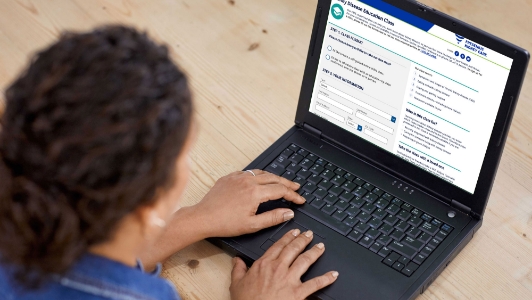Is Foamy Urine a Sign of Kidney Disease?
Normally, urine is the same consistency as water and the color ranges from pale yellow to deep amber, depending on how diluted or concentrated the urine is. Since that’s what we expect to see when going to the bathroom, noticing foam or bubbles in your urine can be unsettling or confusing. If you experience this, you may be asking yourself, “is foamy urine normal?” or “what does foamy urine mean?”
The presence of foam or bubbles in your urine is not an immediate cause for concern if it happens occasionally. A simple explanation for what you’re seeing is a high speed of urination. However, if you notice foam in your urine frequently, you should take it seriously and contact your doctor. Foamy urine can be a warning sign for chronic kidney disease (CKD) and your doctor can help determine the root cause as well as what treatment is needed.
The presence of foam or bubbles in your urine is not an immediate cause for concern if it happens occasionally. A simple explanation for what you’re seeing is a high speed of urination. However, if you notice foam in your urine frequently, you should take it seriously and contact your doctor. Foamy urine can be a warning sign for chronic kidney disease (CKD) and your doctor can help determine the root cause as well as what treatment is needed.
What Are the Causes of Foamy Urine?
Below are a few reasons you may be experiencing foam or bubbles in your urine.
- Speed of urination. If your bladder is full, your urine may hit the toilet at a faster speed than normal, causing the water to stir and create bubbles.
- Dehydration. If you haven’t had much water to drink and are dehydrated, your urine will be more concentrated. When your urine is concentrated, it may foam or bubble.
- Toilet cleaning chemicals. The appearance of foamy urine may also be caused by chemicals in your toilet bowl. Just like when you wash your hands with soap and it forms foam, the presence of cleaning products in your toilet can cause foam to form. Try flushing out the chemicals in your toilet to see if the foam stops.
- Medications. Certain medications can also cause bubbles or foam in your urine. For example, some medications that treat urinary tract infections have been known to cause foamy urine.
- Too much protein. Foam may form if you have high levels of protein, such as albumin, in your urine. Like soap, proteins have certain properties that cause them to react in liquid and create bubbles or foam.

Free kidney health class
Learn about the signs and symptoms of kidney disease and what you can expect. Take our free online class for educational tips and resources.
Start learningRelationship between Kidney Disease and Foamy Urine
A healthy kidney filters waste and toxins from your blood while keeping protein and other important substances that your body needs circulating in your bloodstream. However, when your kidneys are damaged, they can allow too much protein to pass through into your urine. This is called proteinuria. As stated above, the high levels of protein in urine can cause it to be foamy. Protein in urine is not a problem itself, but it can be a sign that something is wrong. If you have a family history of kidney disease, diabetes, or high blood pressure, talk to your doctor about getting tested for CKD.
Additional symptoms to watch for
If you are experiencing any of the following symptoms, in addition to foamy urine, it may be a warning sign for CKD, and you should contact your doctor as soon as possible.
It is important to be aware of how you are feeling and monitor your urine to ensure you catch symptoms early and seek medical assistance. Any recurring symptoms should be taken seriously and shared with your doctor, who can help determine the best treatment options so you can feel your best.
- Changes in urination—this may include increased frequency in urination, pain, or burning while urinating.
- Blood in urine—also called hematuria, this can be a sign of several conditions and should be reported to your doctor immediately.
- Swelling in your hands, legs, or feet—common among people with kidney failure due to the kidney’s failure to remove excess water.
- Shortness of breath—people living with CKD can experience shortness of breath due to a buildup of fluid in the lungs.
- Lower back pain—your kidneys are located on either side of your spine in your lower back. If you’re experiencing problems with your kidneys, you may feel pain in this area.
- Decreased appetite—can be a sign that there is a buildup of toxins in your body making you feel too tired or sick to eat.
It is important to be aware of how you are feeling and monitor your urine to ensure you catch symptoms early and seek medical assistance. Any recurring symptoms should be taken seriously and shared with your doctor, who can help determine the best treatment options so you can feel your best.
Suggested topics
Why Your Doctor May Test for Protein in Urine
Proteinuria, or protein in the urine, occurs when your kidneys aren’t functioning normally, allowing protein to leave your body...
Medications to Avoid or Adjust If You Have Chronic Kidney Disease
When your kidneys don’t function the way they should, prescription and over-the-counter medications can build up in your blood and may cause additional damage to your kidneys or other parts of your body...
What is Ammonia Breath and Is It a Symptom of CKD?
Chronic kidney disease (CKD) is one possible cause of having an ammonia taste in your mouth, sometimes called “ammonia breath.”
